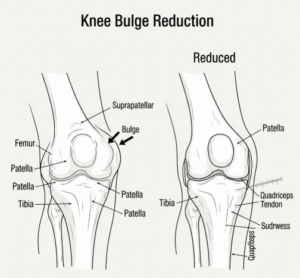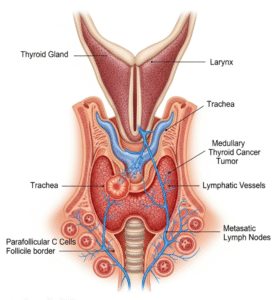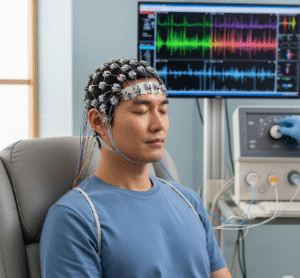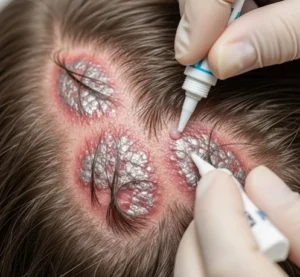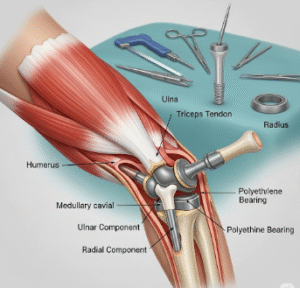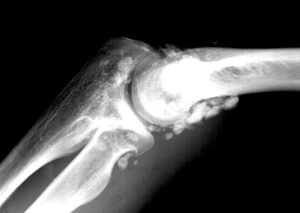Overview
Numbness in the hands refers to a loss of sensation or tingling in one or both hands. This symptom, often described as pins-and-needles, can result from nerve compression, circulation problems, or systemic conditions. While occasional numbness is common and usually temporary, persistent or worsening symptoms may indicate underlying nerve or vascular disorders.
In Korea, evaluation of hand numbness often involves a combination of neurological assessment, imaging studies, and laboratory tests, ensuring precise diagnosis and effective treatment.
Key Facts
➤ Numbness in the hands can be localized to fingers, the entire hand, or one side of the hand.
➤ It is commonly associated with tingling, burning, or weakness.
➤ Causes include nerve compression (carpal tunnel syndrome), diabetes, vitamin deficiencies, or cervical spine issues.
➤ Timely evaluation helps prevent permanent nerve damage.
➤ In Korea, specialists provide integrated care combining medical, surgical, and rehabilitative treatments.
What is Numbness in Hands?
Numbness in hands occurs when nerve signals between the brain, spinal cord, and hand are disrupted, either temporarily or chronically.
➔ Types include:
- Peripheral nerve involvement – e.g., median nerve compression in carpal tunnel syndrome.
- Cervical spine issues – nerve root compression due to herniated discs or cervical spondylosis.
- Systemic or metabolic causes – diabetes, hypothyroidism, or vitamin B12 deficiency.
The sensation may feel like loss of touch, tingling, or pins-and-needles, sometimes accompanied by pain, weakness, or clumsiness.
Symptoms Related to Numbness in Hands
➤ Tingling or prickling sensations in fingers or palm.
➤ Loss of sensation or decreased sensitivity to touch or temperature.
➤ Pain or burning in the affected hand.
➤ Weakness or difficulty gripping objects.
➤ Swelling or stiffness in some cases, particularly if associated with inflammation.
➤ Symptoms may worsen at night or during repetitive hand activities.
Causes / Possible Causes
Hand numbness can result from neurological, circulatory, or systemic conditions:
Neurological Causes
➤ Carpal tunnel syndrome – compression of the median nerve at the wrist.
➤ Peripheral neuropathy – often caused by diabetes or chemotherapy.
➤ Cervical radiculopathy – nerve root compression from herniated cervical discs.
➤ Thoracic outlet syndrome – nerve or blood vessel compression near the neck and shoulder.
Vascular Causes
➤ Poor circulation due to peripheral artery disease or blood clots.
➤ Raynaud’s phenomenon – constriction of blood vessels in fingers causing numbness.
Metabolic and Systemic Causes
➤ Diabetes mellitus – chronic high blood sugar damages peripheral nerves.
➤ Vitamin B12 or folate deficiency – leading to neuropathy.
➤ Hypothyroidism – nerve damage due to metabolic imbalance.
Temporary Causes
➤ Pressure on nerves from sleeping awkwardly or repetitive hand movements.
➤ Cold exposure causing reduced blood flow.
Risk Factors
➤ Diabetes or prediabetes.
➤ Repetitive hand movements – typing, sewing, or factory work.
➤ Cervical spine disorders or previous neck injuries.
➤ Vitamin deficiencies or poor nutrition.
➤ Smoking or sedentary lifestyle, affecting circulation.
➤ Age-related degenerative changes in nerves or joints.
Complications
Persistent or untreated numbness in hands may cause:
➤ Permanent nerve damage, reducing hand sensation.
➤ Muscle weakness or atrophy, affecting grip and dexterity.
➤ Difficulty performing daily tasks, such as writing, cooking, or typing.
➤ Chronic pain or neuropathic symptoms.
➤ Increased risk of secondary injuries due to lack of sensation.
When Should I See My Doctor?
Medical attention is recommended if:
➤ Numbness is persistent, worsening, or spreading.
➤ Associated with weakness, loss of hand function, or clumsiness.
➤ Accompanied by pain, swelling, or discoloration in the hands.
➤ There are symptoms affecting both hands or arms.
➤ Underlying conditions like diabetes, cervical spine issues, or vascular disorders are present.
➤ Sudden numbness occurs with facial drooping, speech difficulties, or dizziness, which may indicate stroke.
Care and Treatment
Lifestyle and Home Measures
➤ Avoid repetitive strain; take regular breaks during hand-intensive tasks.
➤ Gentle stretching and hand exercises to relieve nerve compression.
➤ Maintain balanced nutrition, especially B vitamins.
➤ Keep hands warm to improve circulation.
➤ Correct ergonomics at work or home to reduce nerve pressure.
Medical Treatments
➤ Medications – anti-inflammatory drugs, neuropathic pain medications, or corticosteroids.
➤ Physical therapy – exercises to strengthen muscles and restore hand function.
➤ Splints or braces – particularly for carpal tunnel syndrome.
➤ Surgical intervention – for severe nerve compression (e.g., carpal tunnel release).
➤ Management of underlying systemic conditions, like diabetes or vitamin deficiencies.
Preventive Measures
➤ Regular screening for diabetes and vitamin deficiencies.
➤ Early evaluation of neck or wrist injuries.
➤ Maintain good posture and hand ergonomics.
➤ Avoid prolonged pressure on wrists or elbows.
➤ Exercise and improve circulation in hands and arms.
Treatment Options in Korea
Korean healthcare offers multidisciplinary treatment for hand numbness:
Diagnostic Services
➤ Neurological examination and nerve conduction studies.
➤ Imaging – MRI or ultrasound to detect cervical or wrist nerve compression.
➤ Blood tests – to assess blood sugar, vitamin levels, and thyroid function.
➤ Vascular evaluation for circulation issues.
Therapies and Supportive Care
➤ Prescription medications for neuropathic pain or inflammation.
➤ Physiotherapy and occupational therapy for hand rehabilitation.
➤ Surgical options for nerve decompression, like carpal tunnel release.
➤ Ergonomic and lifestyle counseling to prevent recurrence.
➤ Integrated care by neurology, orthopedics, and rehabilitation specialists.
✅ In summary: Numbness in hands is often a symptom of nerve, vascular, or systemic disorders. While occasional tingling may be harmless, persistent or severe numbness requires prompt evaluation. In Korea, early diagnosis and comprehensive care, including medical, surgical, and rehabilitative approaches, can restore sensation, prevent complications, and improve hand function.


